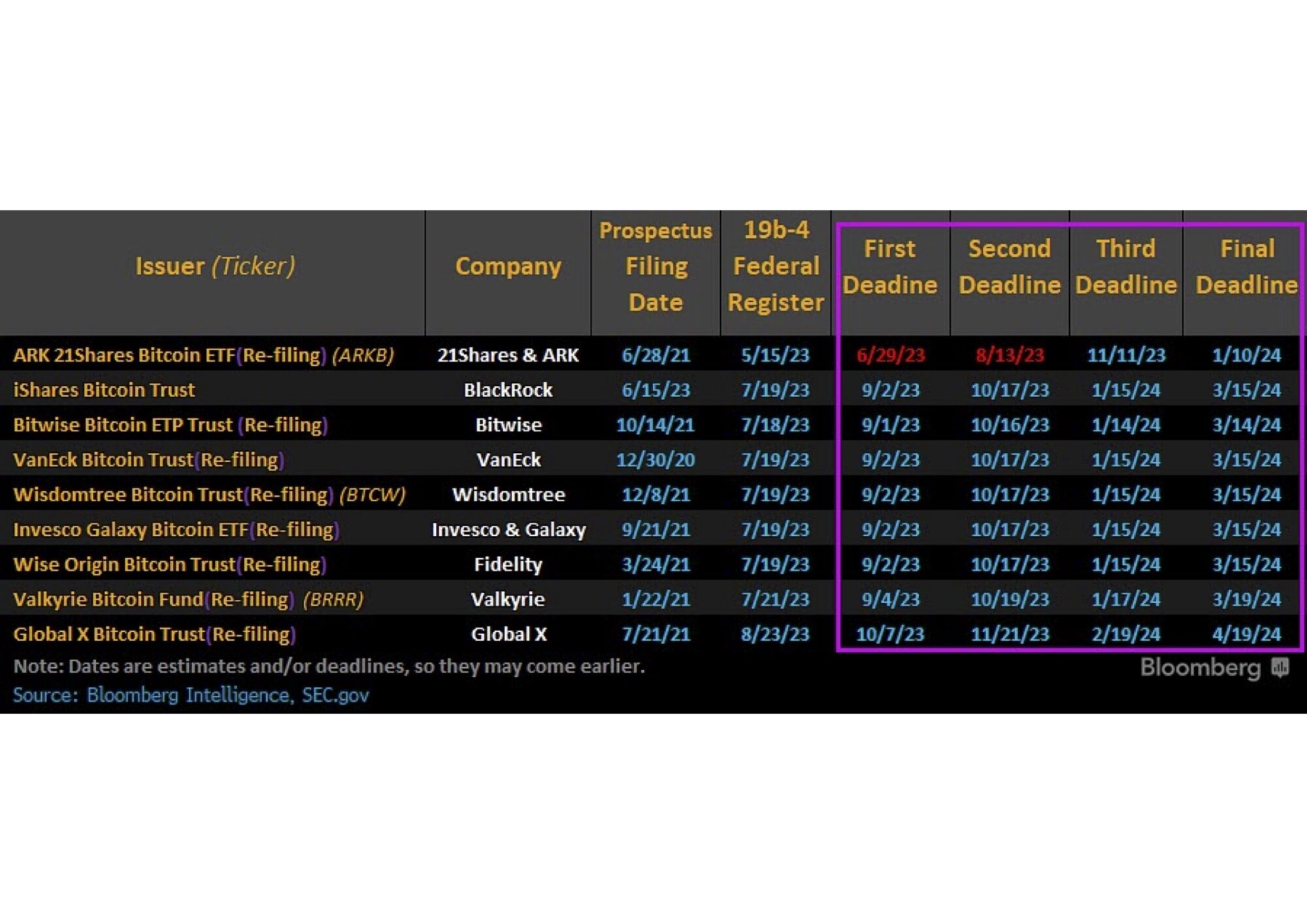categories
All Categories
- Bitcoin
- Centralised Exchanges
- Crypto
- Crypto Asset Volatility
- Crypto Correlations
- Crypto Governance
- Crypto in the Portfolio
- Crypto Valuations
- DeFi
- ESG
- Ethereum
- Investment Highlight
- Regulation
- Security and Privacy
- Social Media Influence
- Stable Coins
- Traditional Finance and Crypto
- Uncategorized
- UNSDG
- Web 3.0
Authors
All Authors

SEC and Crypto
by David Angliss
- Grayscale’s win against the SEC;
- XRP deemed not a security;
- Coinbase lawsuit developments; and
- Uniswap prevailed against a class action lawsuit.
Grayscale
In a pivotal ruling, a U.S. Circuit Court panel sided with Grayscale against the SEC, criticising the agency’s rejection of Grayscale’s Bitcoin spot ETF as “arbitrary and capricious.” The court’s decision has fueled optimism in financial markets and reignited debates about the benefits of a Bitcoin spot ETF, especially for retail investors. The ruling also highlighted the investor harm stemming from the discounted trading of Grayscale’s Bitcoin Trust, an issue that would be resolved by its conversion to a spot ETF. While the verdict doesn’t immediately greenlight an ETF, it compels the SEC to reevaluate its stance. The ruling could open the door for similar spot BTC ETFs, attracting significant capital into Bitcoin markets. All of the spot BTC ETF applications listed below are filed and are similar in nature. The approval of one ETF should release the floodgates on the rest, which could see large capital inflows into BTC.
Explainer: Understanding Grayscale’s Victory in Spot Bitcoin ETF Case.

Source: Bloomberg Intelligence, SEC.gov
Ripple
The SEC’s lawsuit against Ripple, initiated in 2020, has been a crucial test case for crypto regulation. In July 2023, a court decision gave Ripple a partial victory, with Judge Torres ruling that XRP is not a security. Judge Torres found that Ripple’s public XRP sales were legal, but its institutional sales violated securities laws. The mixed ruling offers optimism for fairer crypto regulation and could serve as a precedent for future legal battles involving the SEC and other crypto entities. Apollo Crypto has not owned XRP, but sees the case as pivotal for the industry.
The SEC vs. Ripple lawsuit: Everything you Need to Know
Coinbase
Coinbase has asked a judge to dismiss the SEC’s lawsuit against it, arguing that the regulator is overstepping its jurisdiction. The SEC sued Coinbase for operating as an unregistered broker and exchange for cryptocurrencies, claiming they were securities. In response, Coinbase argues that the transactions on its platform are not investment contracts, but commodity sales. The company cites a recent ruling in the SEC’s case against Ripple as precedent, where a judge found Ripple’s sales on public exchanges were not securities transactions. Coinbase also contends that allegations against its staking and wallet services should be dismissed on similar grounds. Additionally, Coinbase invokes the “Major Questions Doctrine,” claiming that the SEC’s lawsuit would unduly broaden its regulatory reach into the cryptocurrency industry. The SEC has until October 3 to respond to Coinbase’s motion.
Ripple Labs’ partial win against the SEC has set a hopeful precedent for Coinbase’s own legal battle with the regulator. A victory for Coinbase could further empower legitimate crypto firms to engage with the SEC more confidently.
Coinbase Moves to Dismiss SEC Lawsuit, Alleging Crypto Falls Out of Regulator’s Oversight
Uniswap
A New York court dismissed a class action lawsuit against decentralised crypto exchange Uniswap, ruling that the platform was not responsible for scam tokens traded on it. The plaintiffs had alleged that Uniswap violated U.S. securities laws by allowing these tokens to be traded. Judge Katherine Polk Failla, who also oversees the SEC lawsuit against Coinbase, stated that the true defendants were the anonymous issuers of the scam tokens, not Uniswap. She also classified Ether (ETH) as a commodity, a designation the SEC has not yet made.
The judge emphasised that due to the decentralised nature of Uniswap, the issuers of the scam tokens were “unknown and unknowable,” leaving no “identifiable defendant.” The court concluded that Congress, not the court should address such investor concerns. This ruling could influence future cases involving decentralised protocols and U.S. securities laws.
U.S. Court Calls ETH a Commodity While Tossing Investor Suit Against Uniswap
While 2023 is a year that will be remembered by the SEC’s crackdown on the crypto asset industry, there have been very few remarkable wins for the SEC in a court setting. With the fair rule of law proving the SEC wrong, it is reasonable to assume that the SEC has significantly stifled innovation in the US. The destruction of asset prices due to their wide-sweeping enforcement has worked to achieve the exact opposite of their stated mission to protect investors.